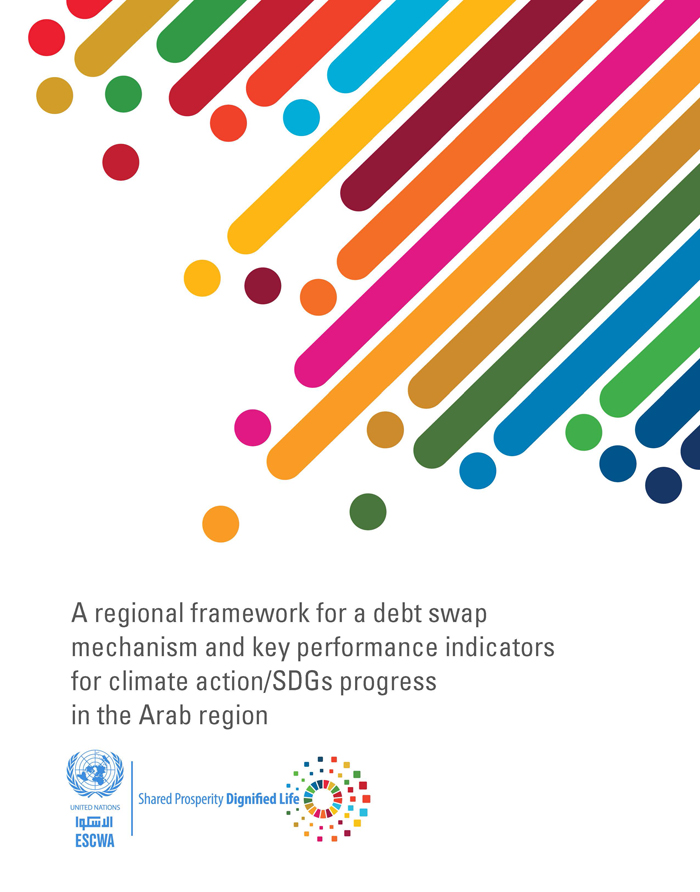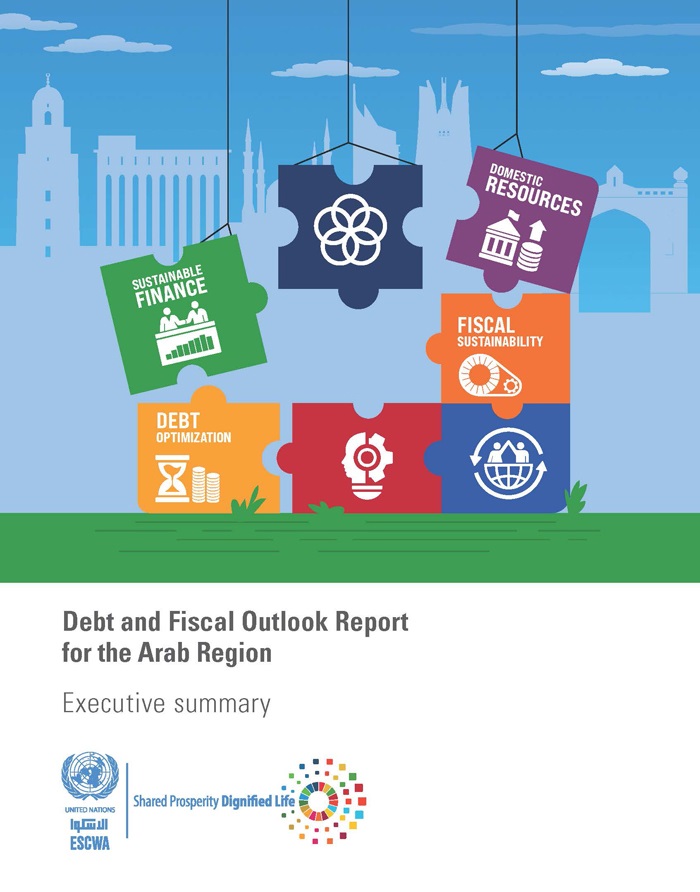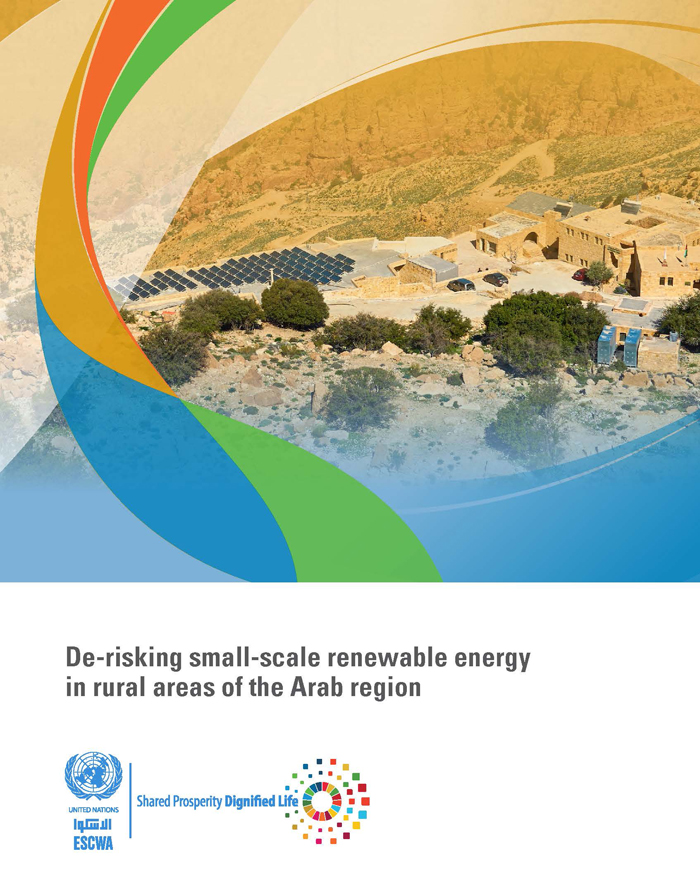
ESCWA Publication: E/ESCWA/CL3.SEP/2022/TP.5
Country: Arab region
Publication Type: Information material
Cluster: Shared Economic Prosperity
Focus Area: Climate change, Debt and fiscal policy
Initiatives: Arab Forum for Sustainable Development, Climate/SDGs Debt Swap
SDGs: Agenda 2030
Keywords: Debt, Climate change, Sustainable development, Finance, Technical cooperation, Environmental aspects, Debt restructuring, Debt conversions
A regional framework for a debt swap mechanism and key performance indicators for climate action/SDGs progress in the Arab region
March 2022
High debt service burdens constrain the ability of many member states of the United Nations Economic and Social Commission for Western Asia (ESCWA) to respond adequately to the Covid-19 crisis and invest in crucial areas of sustainable development. To ensure that ESCWA’s Climate/SDGs Debt Swap Mechanism can achieve transformational impact and spark the interest of relevant creditor governments, this study argues that it is necessary to look beyond traditional approaches to debt-for-climate/nature/development swaps. This study proposes a pioneering approach based on key performance indicators (KPIs) where the debt swap arrangement would not only relate to projects funded through debt service reduction but would also be tied to policy action at the macro level that would contribute to an enabling environment that will enhance sustainability outcomes for the country in question. In effect, debt swaps would be linked to KPIs at both the project and policy levels toward accelerating nature/climate action and SDGs progress.
Projects eligible for the Debt Swap Mechanism should demonstrate the potential to positively impact one or several of these SDGs. At the macro policy level, measures should be devised to either enhance climate and sustainability frameworks or contribute to climate-proofing public finances and public debt management. KPIs need to be selected carefully in such a way that captures the defined goals of the Debt Swap Mechanism. Moreover, they must be attributable to national policy action, be tailored to the specific goals, and be as concrete and operational as possible. Above all, KPIs need to allow for regular monitoring, reporting and verification so that they provide a reliable basis for the envisaged Debt Swap Mechanism during and after its implementation. To this end, they need to be available relatively easily, at a reasonable cost and regular frequency.
Related content
Climate change
, Debt and fiscal policy
,
High debt service burdens constrain the ability of many member states of the United Nations Economic and Social Commission for Western Asia (ESCWA) to respond adequately to the Covid-19 crisis and invest in crucial areas of sustainable development. To ensure that ESCWA’s Climate/SDGs Debt Swap Mechanism can achieve transformational impact and spark the interest of relevant creditor governments, this study argues that it is necessary to look beyond traditional approaches to debt-for-climate/nature/development swaps. This study proposes a pioneering approach based on key performance indicators (KPIs) where the debt swap arrangement would not only relate to projects funded through debt service reduction but would also be tied to policy action at the macro level that would contribute to an enabling environment that will enhance sustainability outcomes for the country in question. In effect, debt swaps would be linked to KPIs at both the project and policy levels toward accelerating nature/climate action and SDGs progress.
Projects eligible for the Debt Swap Mechanism should demonstrate the potential to positively impact one or several of these SDGs. At the macro policy level, measures should be devised to either enhance climate and sustainability frameworks or contribute to climate-proofing public finances and public debt management. KPIs need to be selected carefully in such a way that captures the defined goals of the Debt Swap Mechanism. Moreover, they must be attributable to national policy action, be tailored to the specific goals, and be as concrete and operational as possible. Above all, KPIs need to allow for regular monitoring, reporting and verification so that they provide a reliable basis for the envisaged Debt Swap Mechanism during and after its implementation. To this end, they need to be available relatively easily, at a reasonable cost and regular frequency.



